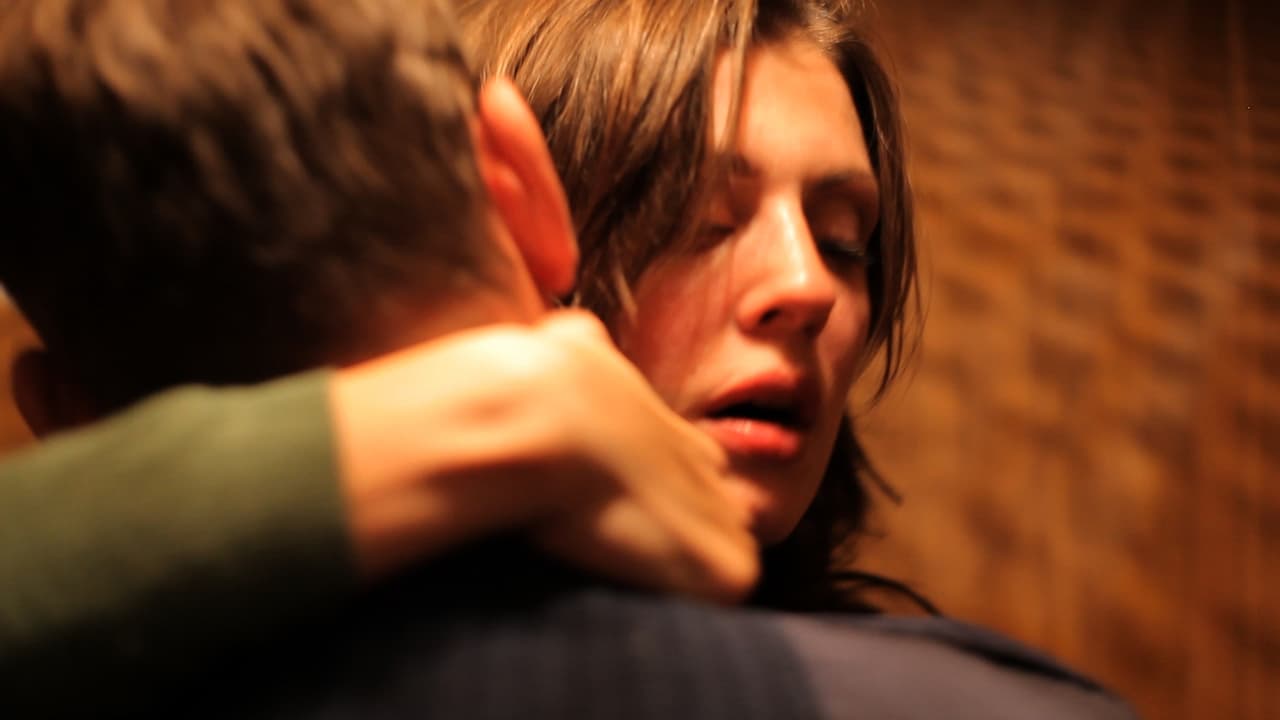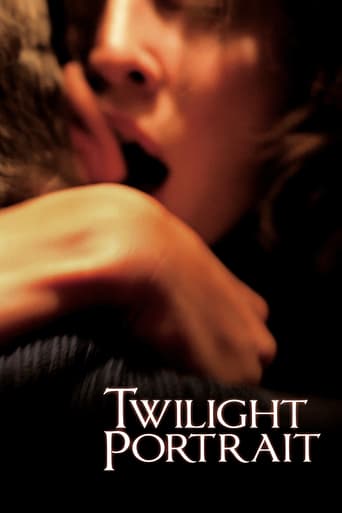CheerupSilver
Very Cool!!!
NekoHomey
Purely Joyful Movie!
Married Baby
Just intense enough to provide a much-needed diversion, just lightweight enough to make you forget about it soon after it’s over. It’s not exactly “good,” per se, but it does what it sets out to do in terms of putting us on edge, which makes it … successful?
Hattie
I didn’t really have many expectations going into the movie (good or bad), but I actually really enjoyed it. I really liked the characters and the banter between them.
Unit22 MS
Beware. This movie is evil. Stupid, granted. Pretentious, granted. "Oh, we want it to be European", granted. But most and foremost it's evil.Marina is a well-off upper-class lady and a social worker (an impossible combination in Russia of course, but director Nikonova seems to enjoy it). Marina is miserable (though one might think her social work would fulfill her), has a weak-willed husband and commits a usual adultery. Then she is raped. Then she does a lot of things none of which make any sense unless she is some kind of Narnia resident.I stumbled upon this movie late at night. I did not want nor planned to watch it, but I had to see what it is and how it ends, otherwise I thought I wouldn't be able to go to sleep... I was naive. I should've turned it off.In Russia we call it "чернуха" - a film that portraits all the bad things that could be in a society in the worst possible way. But "chernukha" is drama and has a moral. Here we see a lot of chernukha and no moral at all. The se(x)nsual catharsis happens when the victim repeatedly and under beatings says to the former rapist "I love you". And here you were, thinking nothing could depreciate those beautiful words. Well, Nikonova knows just the way to profane them.I could go about problems of that movie - it should've been shot in, say, 1985, it struggles to look European or even korean, but the problem's beyond that. The problem is it sends the wrong message. It touches sensitive and serious things, and the writer/director choses to turn it into travesty. She seems to say "forgive is good. love is good." And while the latter is undeniably right, we can not forgive Nikonova for wrapping her ideas into such a harmful or even destructive form.
JvH48
I saw this film as part of the Rotterdam Film Festival 2012. The police force is used here as the main target while portraying Russian society. Firstly, we have the main plot in the form of three policemen raping around when they get the chance. This alone might be dismissed as an exception to the rule (the proverbial rotten apples). But secondly, we also observe how a law abiding citizen is treated when reporting a stolen passport, where the attitude of the police completely defeats the purpose of bringing a crime to the their attention. But it is not only the police, albeit on itself enough to leave us with a depressed feeling. The film extends above observations to society in general. For example, it demonstrates you can't expect decent service as a paying customer in a restaurant. And most bystanders are not very helpful either for someone in need, the one exception we see only serving to prove the rule.Life goes on, even after a radical experience like a rape. Rather than telling family and friends about the dire event, we see it burn inside the victim and change her behavior in many ways: as a social worker (suspecting sex abuse everywhere), and as a family member (insulting all guests one-by-one at a party for her birthday). Following the latter she gets the usual advice to "take a break".Instead, she proceeds in an unexpected manner, by approaching one of the raping police men. What initially starts as an act of revenge in the elevator (we see her entering with a broken bottle in hand), suddenly turns into a love affair. She even lives with him for a few weeks, cooks his dinner, scrubs his bath tub, and more things for which we cannot begin to understand her underlying motives.This could have been a great movie, were it not that several scenes were shown out of sequence, thereby causing some confusion. This was not a matter of flash back or forward, which we can cope with as a generally accepted way of story telling. I rather fear it being an attempt to throw a new format on us, about which the professional critics can write and applaud its newness. We, the general public, have our rights too, and want to understand what is going on and how the plot fits together. Nevertheless, I gave the maximum score for the audience award when leaving the theater, due to its contents and particularly how we got some insight in Russian society of today.
simonkoba
The tough individualist post-communist Russian culture is brightly depicted. Is it cynical coldness or are we close to dehumanization? The bitterness between people is striking. Only vodka seems to replace the lack of warmheartedness and to forget the roughness of communism and the selfishness of capitalism.Marina is desperate about mankind, perhaps as many in Russia. Twilight portrait is the story about Marina trying to recover hope. What does it take for a cynical woman — living in deception and surrounded by liars — to be so shocked that she has to walk away — towards hope — and to find again what she expected in her work.This movie is not about rape and an unbelievable attempt of a woman to take revenge.For sure the main actress has worked as a psychologist and knows well the character. The acting and the direction are brilliant. The story telling is subtle and we are permanently invited to catch what is between the lines, what is behind appearances, to see how people can be suddenly pushed beyond their limits, and how far one can pursue one's need for understanding and heal one's wound.This miraculous low budget movie is about hope contained is recognized vulnerability, and hope that humanity can wake up again.
Gustaf Ottosson
Having seen such a wonderful film at the Stockholm Film Festival as "Twilight Portrait" I was quite embarrassed when my countrymen showed themselves to be culturally handicapped when asking director Angelina Nikonova and co-writer/lead actor Olga Dykhovichnaya, at the screenings Q/A, some of the most obvious questions ever. This cultural (including literature, art and cinema) ineptitude is the only explanation I can possibly have for this, since "Twilight Portrait" is an excellent movie on many different levels. Above all Nikonova and Dykhovichnaya have made a movie that, in the vein of Gogol and Dostoevsky, comments on a country that they love, but a society that they desperately want to improve. The flaws of modern Russian society are accurately addressed by the creators, and what is foremost eminent about this targeting is that, even though festival writers want to accentuate the gender issue, it applies to all levels of inadequacy - no matter if it is police corruption (genderless) or male chauvinism.Psychology plays an enormous part of this movie and in an age where heavily make-uped pirates or vampires facing teenage dilemmas is the norm, I hope AN and OD applies the philosophy "It is not HOW MANY people you impress, but rather WHO you impress that matters" to their filmmaking, otherwise they are going to be disappointed. Most people will find this movie boring and slow, because they are used to shallow, fast moving plot. Some scenes are truly harrowing and not for the common viewer. Nikonova use some techniques that are characteristic for Michael Haneke and she masters them quite well, which makes me confide in her ability to make good movies. Haneke is, according to me, the world's premier director, and anyone who successfully can be influenced by his work is a huge friend of mine. A last note on this movie is that I've seen quite a lot of modern Russian productions (including the work of Ilya Khrzhanovskiy, Andrei Zvyagintsev and Alexander Zeldovich), though it is really rare that I get moved in the way that "Twilight Portrait" moved me. Perhaps it is because I recognize the truthfulness in Nikonovas description of modern Russia, and if anyone less subjected to empiricism concerning this country watches it, it must be the best window into an unknown world created in a long time.

